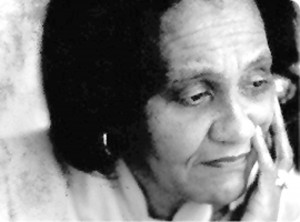Honoring our seniors by protecting them from hunger
19th May 2014 · 0 Comments
By Bishop Don DiXon Williams
Contributing Writer
(Special to the NNPA from The Washington Informer) — This month we celebrate our seniors. Not only should we take the time to remember the great strides and accomplishments the generations before us have made and continue to make, but we also need to think seriously about their well-being.
Like me, many baby boomers are making their way toward retirement after decades of hard work and fruitful contributions to society. At a time when we should be living out our lives in leisure, spending time with loved ones, and traveling, millions face the harsh reality of hunger.
Sadly, hunger among older Americans has increased the last few years. From 2001 to 2011, the number of seniors experiencing hunger increased by an astounding 88 percent. An astonishing 8.8 million seniors now suffer from food insecurity.
I believe it’s time for a change. The first step is understanding hunger and its long-term implications on our health. Food insecurity leads to more health risks. Seniors who struggle to put food on the table are 2.33 times more likely to report fair or poor health. Thirty percent of seniors — including those who have worked their entire lives — now have to choose between feeding themselves or purchasing medication! This is a choice no one should have to make.
The next step is learning what resources are available to help those who may have fallen on hard times to avoid hunger. There are programs like the Supplemental Nutrition Assistance Program (SNAP, formerly food stamps) and Meals on Wheels that can help bridge the gap when times are tough. In one of the world’s wealthiest nations—one full of resources to prevent hardship—it is unacceptable that so many people go without.
Finally, we must erase the stigma that prevents many older Americans from applying for these programs or talking about hunger at all. Many of us don’t participate in the programs available to us for fear we may be judged for accepting a handout. But at Bread for the World, we look at these programs as a “hand-up,” not a handout. They exist to help vulnerable people get back on their feet after hardship, and to ensure that they receive the vital nutrients needed to live a healthy life, despite economic difficulty.
One of the best ways to honor our seniors this Older Americans Month is to ensure that they have enough to eat. Help at soup kitchens and food pantries, and spread the word to ensure that those who need assistance are aware of available resources.
Finally, it’s important that we let Congress know we value our seniors by protecting the programs that help in times of need. For more information on what you can do to help, visit www.bread.org.
This article originally published in the May 19, 2014 print edition of The Louisiana Weekly newspaper.



